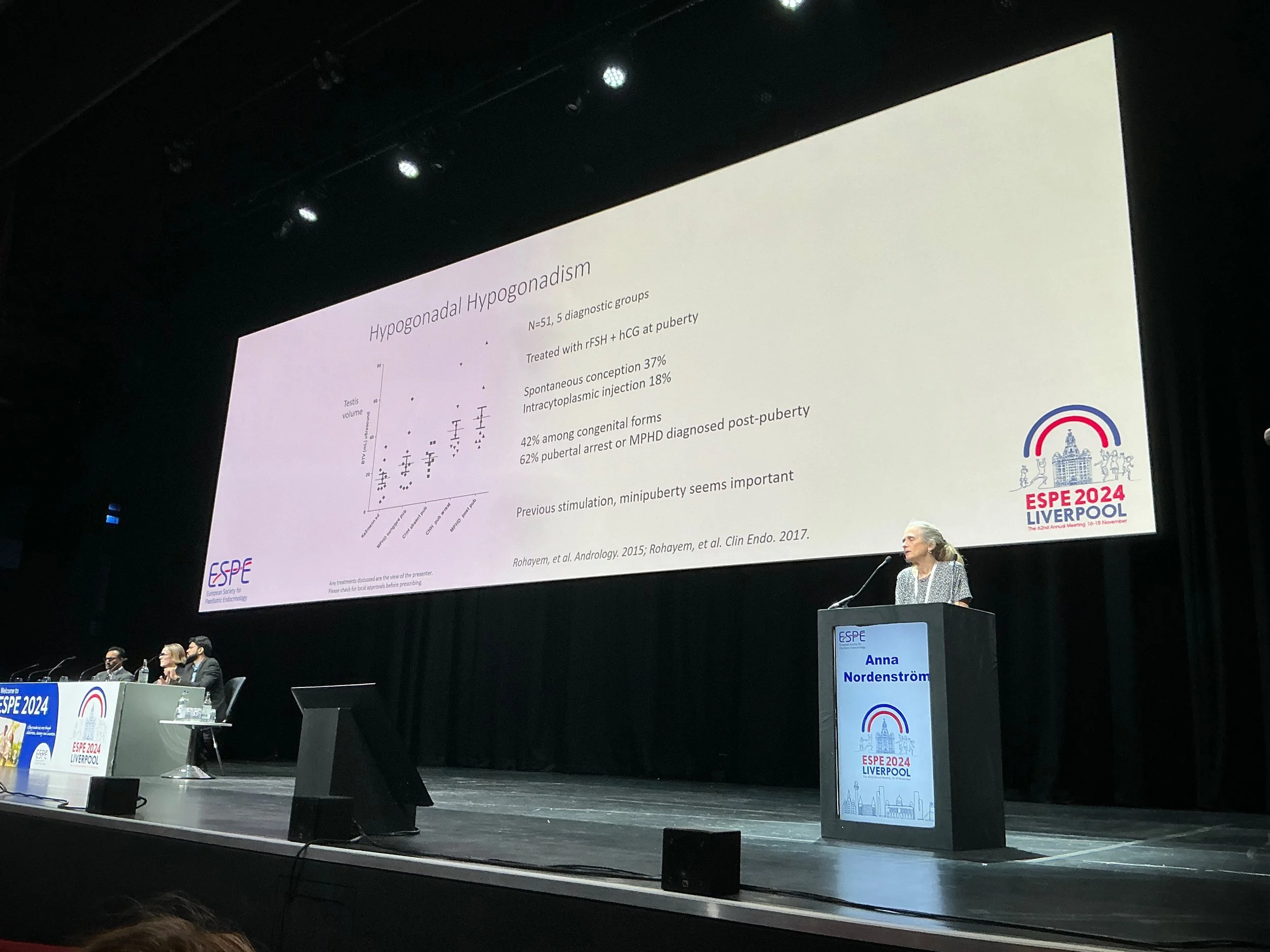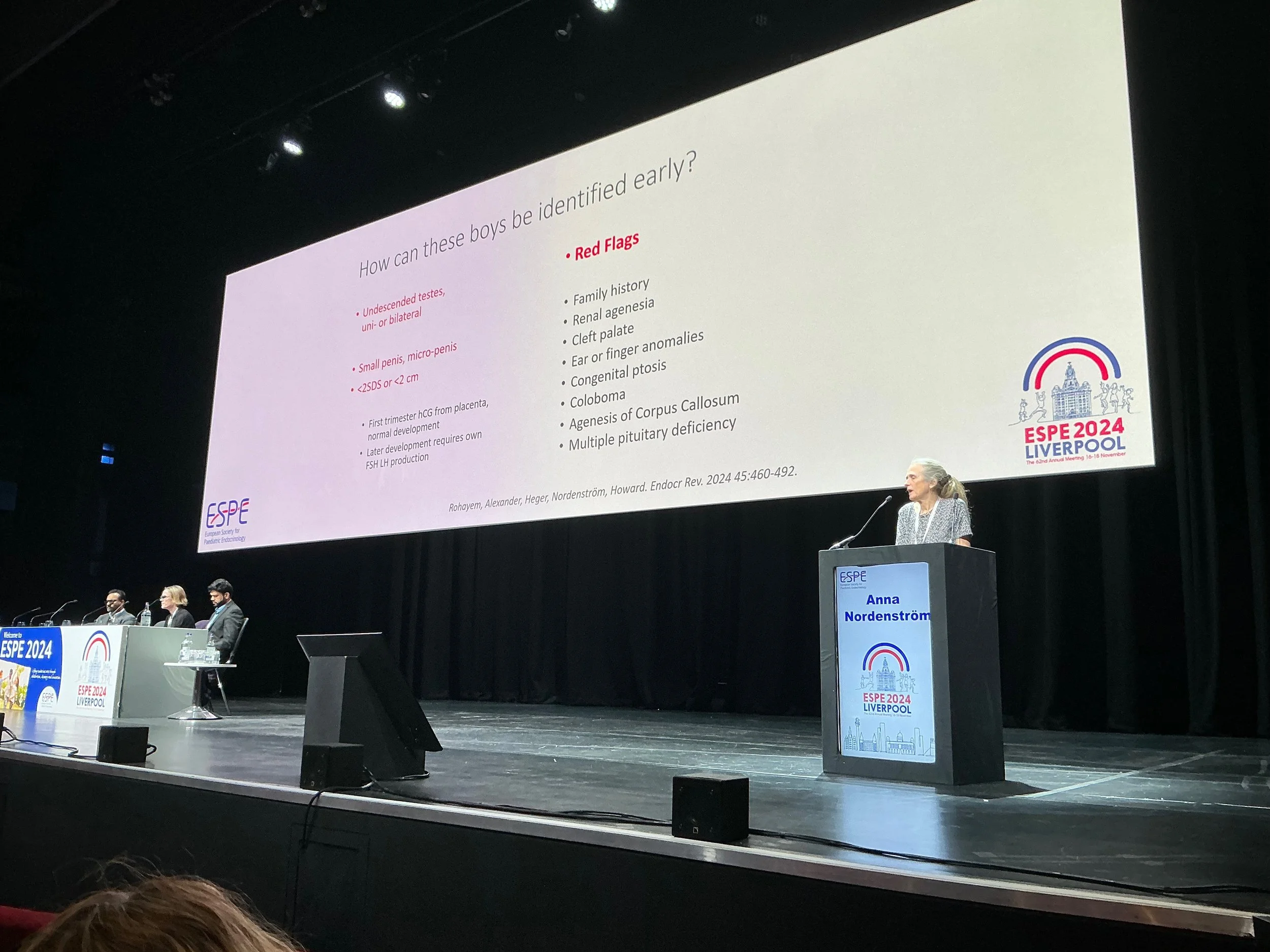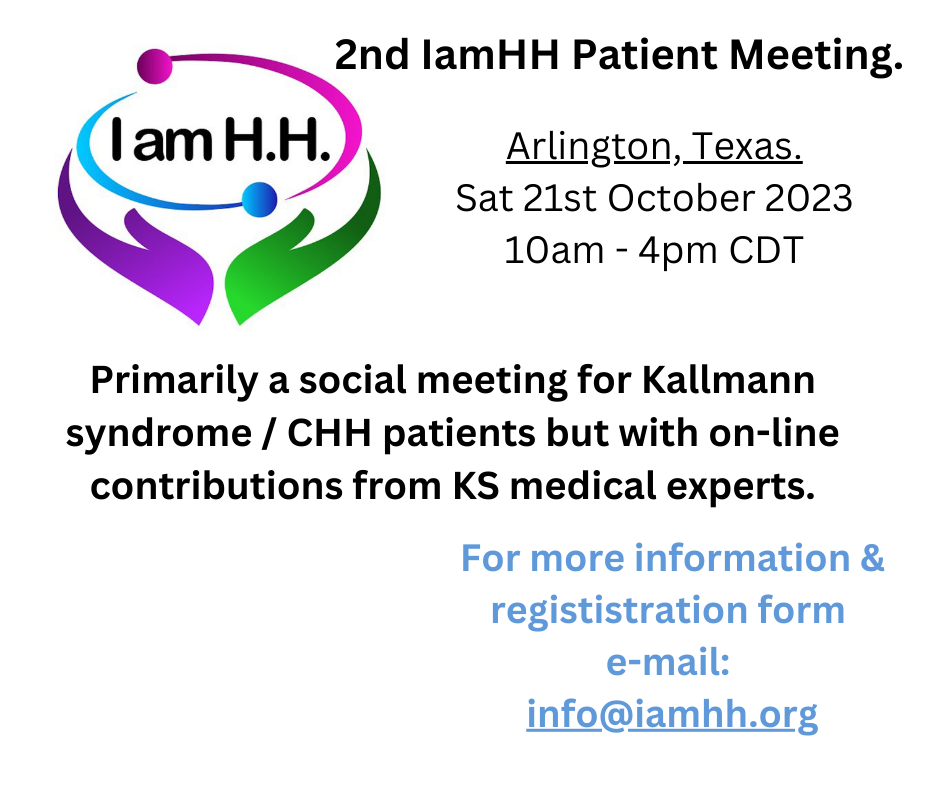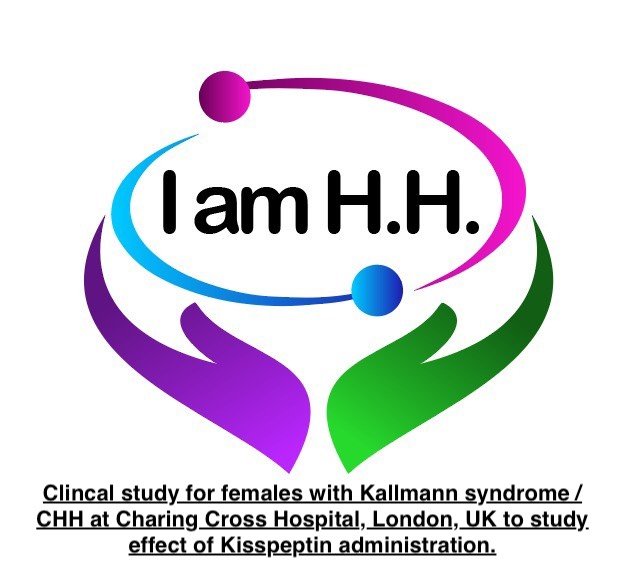Attending European Society of Paediatric Endocrinologists (ESPE) meeting 2024.
I recently attended a meeting of ESPE - European Society of Paediatric Endocrinologists in Liverpool, UK. I attended presenations relevant to Kallmann syndrome / hypogonadotropic hypogonadism.
The three presentations were on genetic testing for HH patients, mini puberty and treatment of adult HH patients.
Points of interest:
A couple of Danish studies that link low testosterone levels in mini puberty to language and social skills later in life.
The lack of hormones in mini puberty is more apparent in males than females, but can be detected in both.
The presentation on adult KS / CHH mentioned vasomotor effects as a symptom - hot flushes and sweating.
Mini puberty is important for testicular descent, penile growth and fertility chances in males.
Mini puberty is important for breast and uterine development in females, but fertility chances should not be affected.
Endocrinology Conference - Boston. #ENDO2024
In June I will be attending the Endocrine Society conference in Boston. ENDO2024.
I will be presenting a poster on my patient journey with Kallmann syndrome from late diagnosis to patient advocacy.
Hormone therapy in Kallmann syndrome / CHH neonates and young adults.
Mini puberty is the post natal surge of reproductive hormones (LH, FSH, testosterone or oestrogen) that normally occurs in the first 6 months of life.
This surge is missing in Kallmann syndrome / CHH patients.
Testing children of Kallmann syndrome / CHH parents can help in the early diagnosis of the condition if no surge is detected.
Hormone treatment before 6 months of age, in males, to replace this missing mini puberty can help in future physical development, as with penile and scrotum development. It is also thought it could help with future fertility treatments but this has left to be proved by follow up studies on patients given early treatment.
Gonadotropin can be used instead of testosterone therapy in teenage male patients. It will allow for testicular growth and potentially fertility. There may be a body image advantage in having a more natural looking puberty at this age.
It is a more intensive therapy than testosterone replacement, with more injections and can be more expensive that testosterone therapy.
The use of FSH alone first before the use of hCG in fertility treatments can mimic the missing mini-puberty. This approach is becoming standard within KS specialist centres, especially in severe cases where the initial testicular volume is low. However more research may be required and it could be many years before this approach is known and accepted by endocrinologists who do not treat Kallmann syndrome / CHH patients often.












































